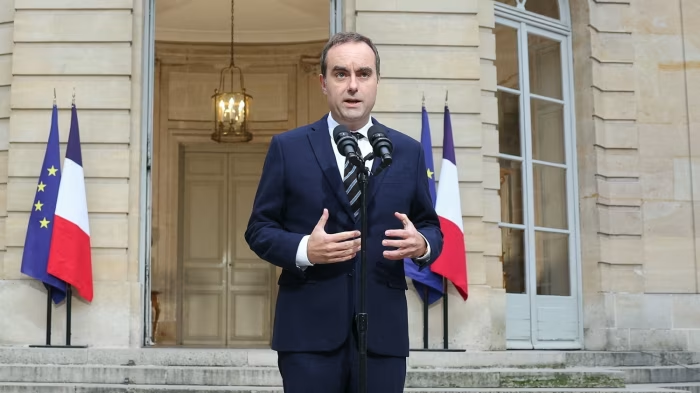Unlock the Editor’s Digest for free
Roula Khalaf, Editor of the FT, selects her favourite stories in this weekly newsletter.
France’s prime minister Sébastien Lecornu has resigned less than a month after his appointment, prompting a market sell-off amid concern about dysfunction in the Eurozone’s second-biggest economy.
Lecornu, a long-serving ally of French President Emmanuel Macron, submitted his resignation on Monday morning, the Élysée Palace said.
The move, just hours after Lecornu had named ministers for his prospective administration, came after his allies in the centre-right Les Républicains indicated they could withdraw from his government.
The leftwing Socialist party also threatened to vote it down unless Lecornu suspended Macron’s emblematic pension reforms.
Lecornu is now the third prime minister to have left office since Macron called snap parliamentary elections in summer 2024, a vote that left the French assembly bitterly divided and has made governing near impossible.
Macron will be faced with the difficult challenge of either naming another prime minister who is likely to encounter the same difficulties as Lecornu and his predecessors, or calling new parliamentary elections.
French markets fell on the news, with the Cac 40 stock index down 2 per cent, led by declining bank stocks. A fall in government bond prices pushed up the country’s 10-year borrowing costs 0.05 percentage points to 3.56 per cent.
“The only way to stop this crisis is to have a new election,” said Emmanuel Cau, head of European equities strategy at Barclays. “It’s making Europe hard to invest in, and creating an excuse for investors to tread carefully.”
He added: “The market has to think about the far right being a position to capitalise.”
The additional interest rate paid on French debt over benchmark German Bunds — a closely watched measure of market worries — went as high a 0.88 percentage points, close to its highest level since the Eurozone debt crisis more than a decade ago.
Jordan Bardella, president of the far-right Rassemblement National, which is already the largest party in the Assembly and is leading in French polls, urged Macron to call elections in response to the crisis.
“We have no other possibility but to return to the French people because once again, the longer we wait, the more we play with the stability of the country and the anguish of our compatriots,’ he said.
Lecornu had promised a “rupture” with previous Macron governments but announced a slate of ministers from his predecessor’s cabinet as well as ministers from earlier Macron administrations.
“The political problems mean none of the issues that are haunting France will be tackled,” said Peter Schaffrik, global macro strategist at RBC Capital Markets, referring to France’s ballooning government debt pile.
Schaffrik said the outlook for French assets remains “murky to bad”.

